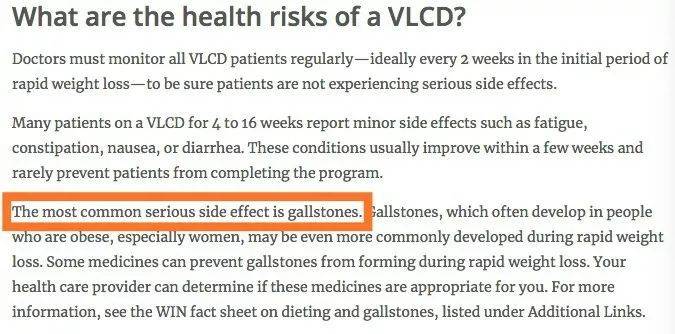Hello, everyone, I am Gu Chuanling. I have been engaged in nutrition science popularization and practical work for 8 years since I graduated from the Master of Nutrition. I became the first batch of registered nutritionists in 2017 and won the Microblog Health Celebration Award in 2018.
My focus is on women’s nutrition and health. I hope to form a scientific lifestyle with my female friends and become thinner, more beautiful and healthier.
Before, there was a news report about [dieting to lose weight and gastric perforation] that everyone should have heard.
The woman in the news is of normal weight, but she still thinks she is fat, so she changed three meals to two meals and did not eat after 2 o’clock in the afternoon. She lost nearly 10 kg a month. Later, she found out that acute gastric perforation was found out. Fortunately, the doctor repaired it in time, otherwise it is likely to cause peritonitis, toxic shock and even death.

Source: News Screenshot
Although dieting is a commonplace topic, there are still many friends who really don’t know how to eat a diet, so they often go on a diet without knowing it and hurt their bodies in a muddle-headed way.
These five kinds of eating methods
They are all excessive diets.
The gold standard for judging whether to go on a diet is daily energy intake.
Strictly speaking, as long as you consume less energy than before, you are on a diet. You can lose weight by keeping your mouth shut for seven points and keeping your legs open for three points. How can you lose weight if you eat no less than before?
Therefore, professional nutritionists recommend [proper diet] to lose weight, that is, about 300 kilocalories less per day than before. This is because the hunger feeling of 300 kilocalories less is not too obvious and easy to stick to, which is professionally called [limited energy balance diet].

If the daily energy intake is reduced by more than 300 kilocalories, it is [excessive diet], which is what people often say about diet. What are the common ones?
No breakfast or dinner
< < Reference Intake of Dietary Nutrients for Chinese Residents (2013) > > It is suggested that white-collar women need an average of 1800 kilocalories per day.
The energy supply ratio for breakfast and dinner is about 30%, and if you don’t eat breakfast or dinner, you will consume 540 kilocalories less. If other meals don’t increase energy intake, it is an excessive diet.
5 + 2 intermittent light food cut-off
This means eating relatively normally five days a week and consuming only one-fourth of the energy for the other two days.
Take white-collar women as an example, that is, they consume 1800 kilocalories per day for 5 days and 450 kilocalories per day for 2 days. The calculation shows that the average daily energy intake is 1400 kilocalories, which is also an excessive diet.
Replace meals with enzymes/fat-reducing biscuits/meal replacement powder/milkshakes, etc.
If only one meal in breakfast or dinner is replaced, it is not considered excessive diet when the meal has to be eaten to about 250 kilocalories. If the energy intake is less than 250 kilocalories, or instead of two or three meals, it is definitely an overdiet.
Copenhagen diet
According to the recipe published by APP, every meal is eaten and full, but the daily energy intake is less than 800 kilocalories.
This is a typical very low energy diet (VLCD), which is no longer a small diet, but a very serious diet.
Bigu
Inherited from ancient Chinese monks, it is a top-level diet that is close to hunger strike.
Five Hazards of Excessive Dieting and Weight Loss

Menstrual disorder and amenorrhea
This is the most common problem for women to go on an excessive diet.
Excessive diet, It will lead to insufficient energy and nutrition for various functions of the body. The body will activate its self-protection mechanism. Priority should be given to energy and nutrition to maintain basic survival functions such as respiration and heartbeat. Menstruation is insignificant in front of these functions and will be sacrificed. Behind amenorrhea is hormone disorder, which may also cause insomnia, dysphoria, hyperhidrosis and other problems. Serious disorders will also affect follicular development and ovarian function, and the most serious will cause infertility.
Flabby skin
Excessive diet not only reduces fat, but also loses muscle. Skin relaxation is only the lightest symptom.
If excessive diet is very serious, it may also lead to the decomposition of visceral tissue proteins, especially harmful to the heart.
Chill aversion, anemia, alopecia
Excessive diet is easy to lead to malnutrition, which leads to fatigue, dizziness, weakness, aversion to cold, alopecia, anemia and other symptoms.
Increased risk of gallstones
Severe excessive dieting, such as extremely low-energy diet, may cause cholesterol supersaturation in bile, thus increasing the risk of gallstones.

Source: National Institutes of Health
Increased risk of osteoporosis
If it is to strictly control excessive diets with high carbohydrate and protein intake, such as Atkins diet, ketogenic diet and Copenhagen diet, it will increase the burden on liver and kidney, and may also cause acidosis. If it is serious, it will also cause bone mass loss and increase the risk of osteoporosis.
